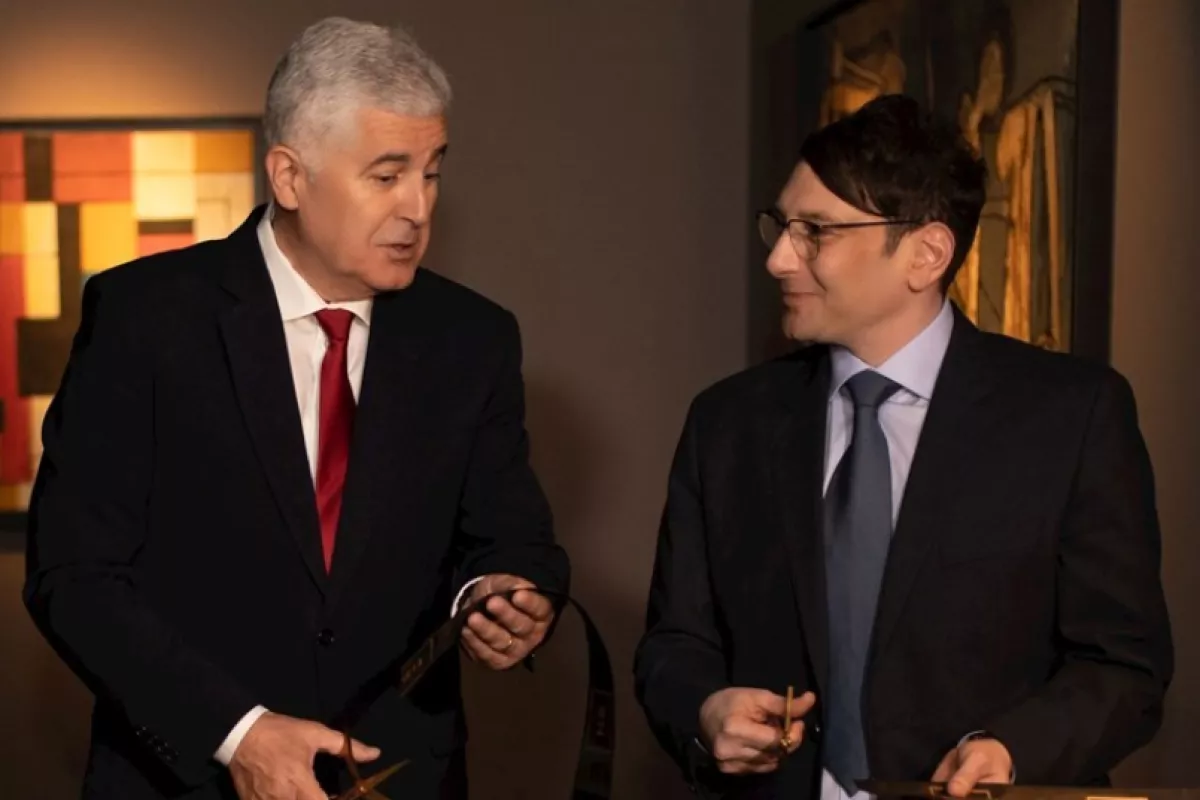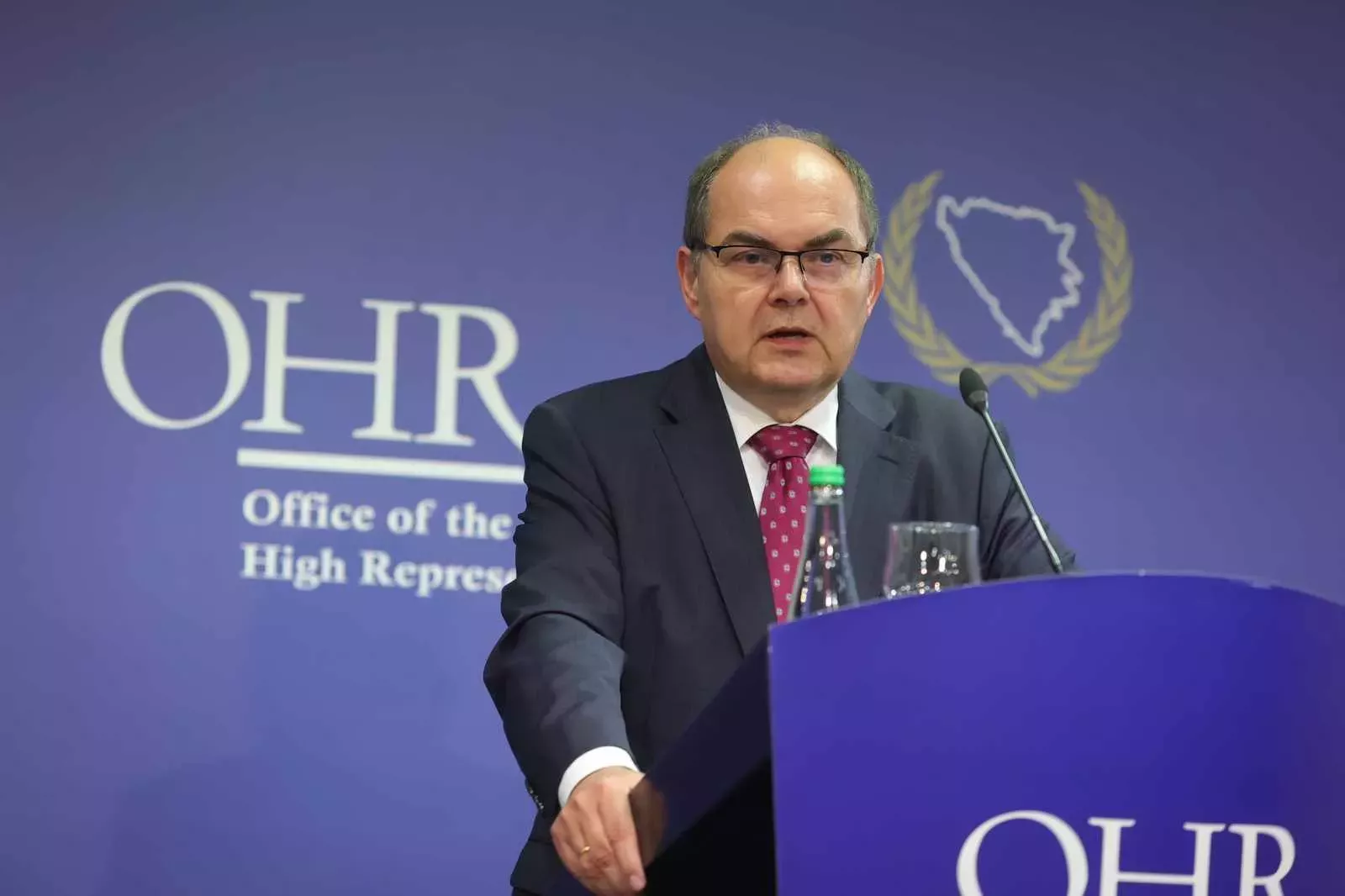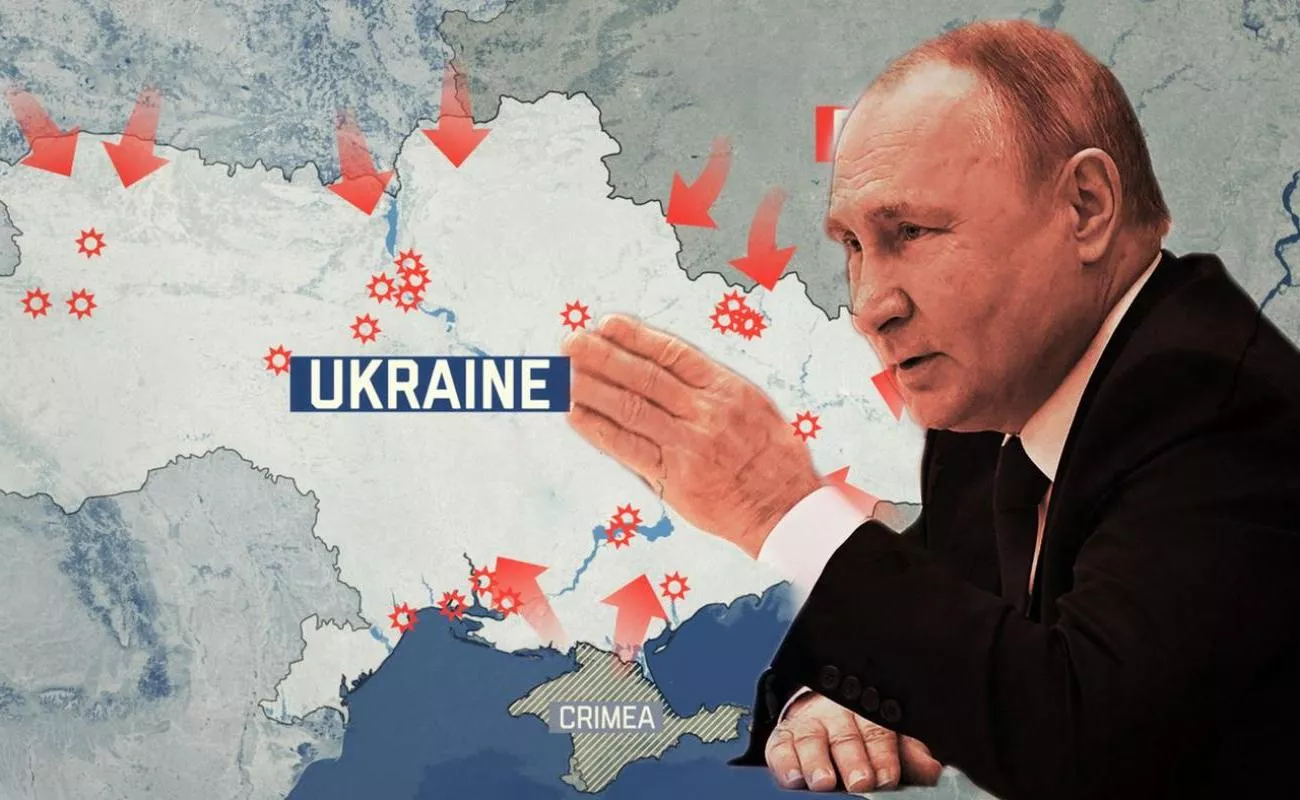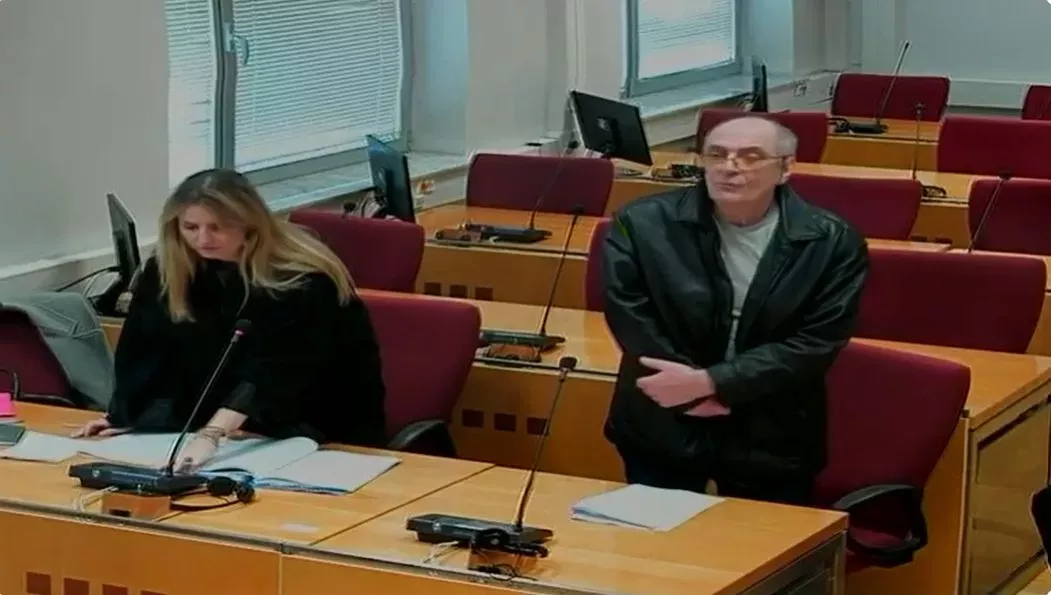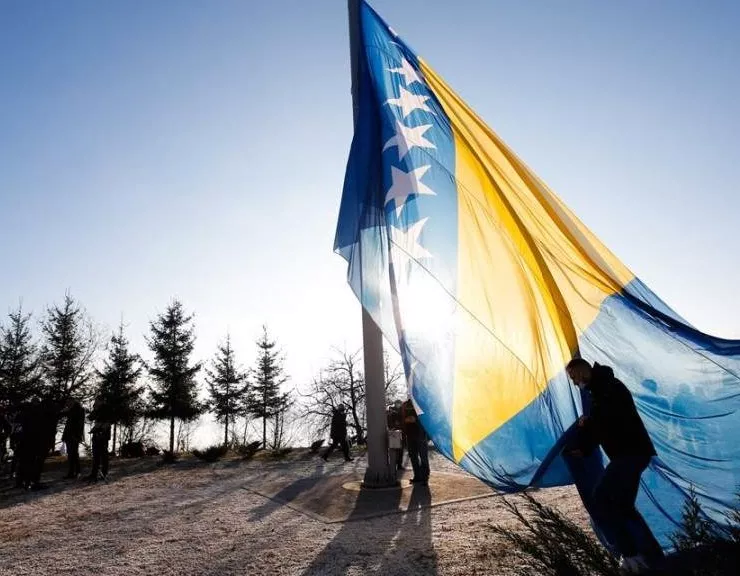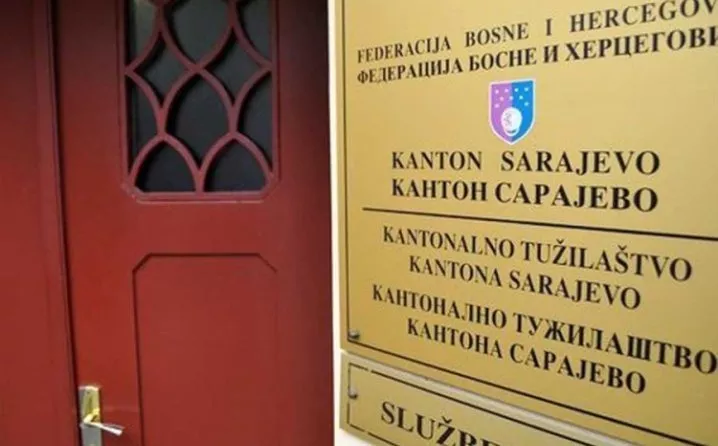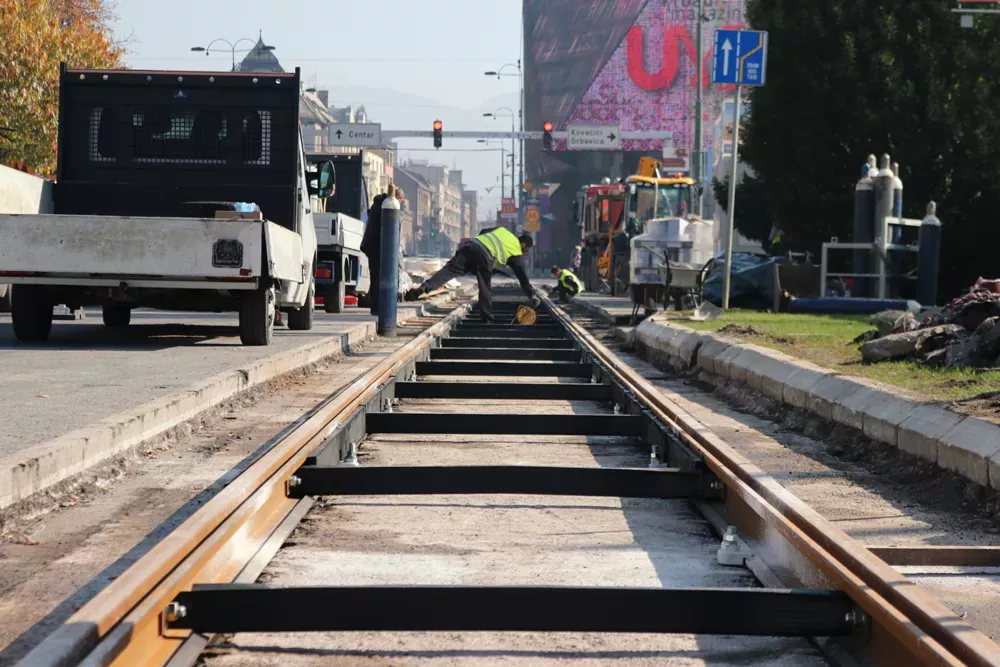

.jpg.webp)
SDA has been the ruling party in FBiH since 1990. After the war, people expected progress in every field, a better life and employment rates growth. However, everything has been taking place at the slowest possible rate.
Led by SDA, Bosniak people has lost all of its battles – in all fields. Catastrophic privatization, a total economic breakdown and the biggest army of the unemployed in Europe. Sky-rocketing debts. Failure of education, from the elementary to the tertiary. The lack of cultural strategy for more than 3 decades after the war. Failure in every single field, from the judiciary to the executive power in various sectors.
For 20 years, SDA has been agreeing to the ministries which have not held as little as the 100th part of the budget, which has been ending up in the hands of HDZ. The party itself is highly corrupted, pathologically self-obsessed and self-indulgent, with its management working exclusively for personal gain instead of development of society and creating an ambiance for a better life for everyone.
This is the first part of Patria's feature that analyzes the fatal ruling of the national Bosniak party.
Ever since the war, SDA was not the ruling party for two years only – at the time when the Alliance for Change was the governing party. So what we have today is a consequence of 20 years with SDA as the ruling party.
Say they were not able to do much at the state level, but let us examine the situation in the federation where they have ruled over the past two decades.
The power has been in their hands even at the cantonal level, namely in Sarajevo, Tuzla, Zenica-Doboj and Una-Sana cantons with total population of 1,600,000 and 80% of Bosniaks. They have shared the power in two cantons – Central Bosnia and HNK with population of 500,000. Therefore, they have had enormous power in the federal government with cantons where 90% of entity population live. Nothing has stood in their way to bring (this part of) the country to normalcy and economic and every other kind of recovery.
Instead, the things have gone in the opposite direction. Following the first couple of successful years of recovery, GDP increased by 27%, which is logical in a war-torn country. 4 years later, the fall began.
Privatization was carried out in the worst possible way. Certificates given to former soldiers lost their financial value so they were sold for 5-10% of their nominal value. An opportunity was created to grab money by various manipulations within the economic and societal anomalies. The poor were rapidly getting poorer, and the rich were getting rapidly richer. The social stratification became visible.
Instead of job creation in the production, and strategic strengthening of agriculture and old giants such as Energoinvest, UNIS, UPI which had been highly positioned in the third-countries market, the economy ended up in stalemate. It was unusual for SDA not even to initiate or nurture relations with Islamic countries, where BiH enjoyed great respect.
The process of privatization quite brutally handed the companies of exceptional value over to small-time manipulatives, who are not competent even to run a small enterprise. The current chaos in the economy and consequently in the country, is a consequence of that move. Even when local companies started falling apart before the public and the workers, when everyone could see where the insane process was leading the country to, SDA did not react. Instead, it allowed the process of destruction to continue until the (country's) last breath.
Privatization robberies are another story. Examples are many but the most prominent are companies from Tuzla: Dita, Polihema, Guming, Aida... Tuzla has the highest unemployment rates of 105,000 persons registered with the Unemployment Bureau. Detergent factory Dita was revitalized by the most persistent workers and patriotic citizens of BiH who started a massive campaign of buying local produce.
Several powerful world giants were thus buried in Sarajevo. Energoinvest, which several years before the war, registered annual profit of 600 million US$ (dollar was 2.9 to 3.3 of German mark). UNIS was one of the leading companies in former Yugoslavia, which produced and rendered services relating to motor vehicles and spare parts, metal and chemical industry, tools, military industry, telecommunications, electronics, hotel, tourism and hospitality management. Energopetrol, as the biggest fuel distributor was shamefully sold – for less than INA-Mol.
Also in Sarajevo, factory of sweets, then powerful companies Famos and Pretis also ceased to exist. Although we should not ignore massive destruction of the war, some of it could have been saved and built upon with a little bit of will and perseverance. Those big brands could have been capitalized in one way or another. In much the same way, other giants disappeared in BiH, Agrokomerc, Slavko Rodic, and Soko from Mostar...
Obviously, development, employment and progress have not been on SDA's agenda.
While the companies were falling apart, no new platform for development was being built. Not one single new company was making such progress as to be singled out in the current market.
At present time, everything seems to be merely surviving or stagnating at best. Something like the biggest national Bosniak party has become.
At the same time, the state institutions and public companies have been getting filled with family members and armies of the 'suitable'.
